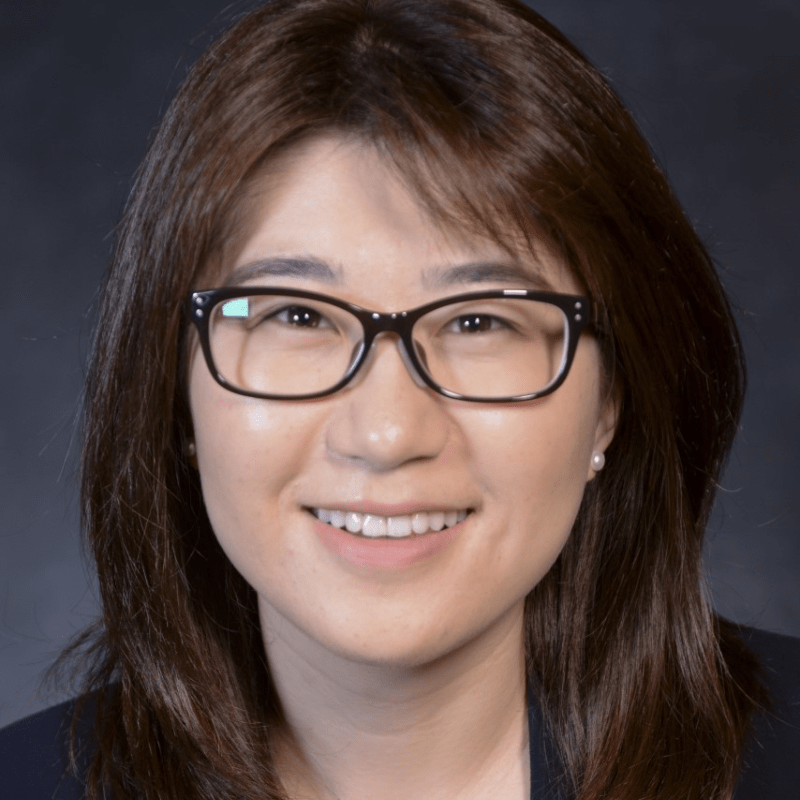Alumna Tianyu Qin Supports Intercultural Growth
By KellyAnn Tsai
Sophie Tianyu Qin (DC 2018) received her Ph.D. in Second Language Acquisition (SLA) at Carnegie Mellon University in 2018. She is now an assistant professor of Chinese at the University of North Georgia, where she conducts research on pragmatics and dynamic assessment and teaches a variety of Chinese language and cultural courses.
Qin also serves as academic director of the Chinese Flagship Program at the University of North Georgia, a program that helps students from across disciplines build professional level proficiency in Mandarin Chinese and gain advanced cultural skills.
Looking back on her studies in Carnegie Mellon’s SLA program, Qin says the experience has played a pivotal role in preparing her for an academic career and shaping her approach to mentorship.
Tell me about your research.
During my Ph.D. studies, I worked with Dr. Rémi A. van Compernolle. My research area was primarily pragmatics, language assessment and pedagogy.
Leveraging my training in SLA, I presently hold the role of assistant project director at the Chinese Flagship Cultural Initiative, which is supported under a two-year grant funding to Indiana University from the Institute of International Education (IIE). It is a collaborative, inter-institutional initiative that aims to support intercultural growth in the Language Flagship This project develops open-access cultural learning materials to prepare students for study and work abroad in Chinese-speaking regions.
Why did you decide to pursue the Ph.D. in Second Language Acquisition at CMU?
I did my master's in Teaching English as a Second Language at the University of Illinois Urbana-Champaign (UIUC). I didn’t have much teaching experience when I started. During my first year, I took courses on SLA theories and pedagogy, and I also got the opportunity to explore different fields such as Chinese linguistics. During my second year of my master’s, I started to teach Chinese at UIUC. From there, I began to think about combining my interest in second language acquisition withChinese.
By the time I was looking into Ph.D. programs, I was very interested in the specific field of dynamic assessment. I discovered that Dr. van Compernolle is an expert in the field. I really wanted to study with him, and that is why I applied for CMU. It remains one of the best decisions I have made in my life.
What were the highlights of your experience in the SLA Ph.D. program?
I really enjoyed working with my advisor. Dr. van Compernolle was very supportive and shaped how I am as an independent academic in the field. He was a role model for me not only in work, but also in life. He is undoubtedly a very accomplished scholar himself, yet he never imposed a specific field of study upon us. He always respects students' interests and choices, which I appreciated so much.
The Ph.D program was a very friendly and welcoming environment. The Ph.D. student group is small, so we received a lot of individualized attention from our professors. I made some very good friends here.
As an independent academic today, I work hard to support my own students. Some of them must carry a full course load and manage a demanding workload to financially support their college education. I want to make sure that for these students who may not have opportunities to study abroad, they can still experience the language and culture overseas. I also support my students to reach the professional level of Chinese competency so they can use the language and culture skills in their future careers. I feel like that's the influence CMU gave me.
How did the Ph.D. in SLA prepare you for your academic career?
I think the way the Ph.D. program is built is really strong. You first complete a benchmark paper that asks you to synthesize a selected field, then you start to conduct your own original research in the second year. It's fast paced, which I liked, because we don’t have to spend a long time getting a Ph.D. It can be stressful, but it's efficient and it gives you the training and professional skills you need to go on the job market.
I also gained valuable teaching experience at CMU. Throughout my Ph.D. I had the opportunity to teach different levels of Chinese language and cultural classes — not just lower level Chinese language courses, but also content courses such as Introduction to Chinese Language and Culture. The faculty in the Chinese studies program were very supportive. At the beginning, when we were new to the teaching field, Dr. Yueming Yu and Dr. Gang Liu gave us tremendous scaffolding: they helped us design syllabi, and generously shared teaching materials with us. They also provided guidance in navigating the job market. All of this training really prepared me to be independent on my own today.
Do you have any advice for students who might be considering the SLA program at Carnegie Mellon?
If you're considering applying, I kindly suggest ensuring your genuine interest, especially in research and teaching within academia. While CMU's Ph.D. program is known for its solidity and accelerated pace, it requires a significant commitment. Therefore, being mentally prepared for the demands of the Ph.D. journey is important.
Once you’re in graduate school, I would also recommend preparing for the future job market as early as possible. Explore other opportunities during graduate school. Make good use of the summers by teaching at intensive summer programs to gain more teaching experience.
